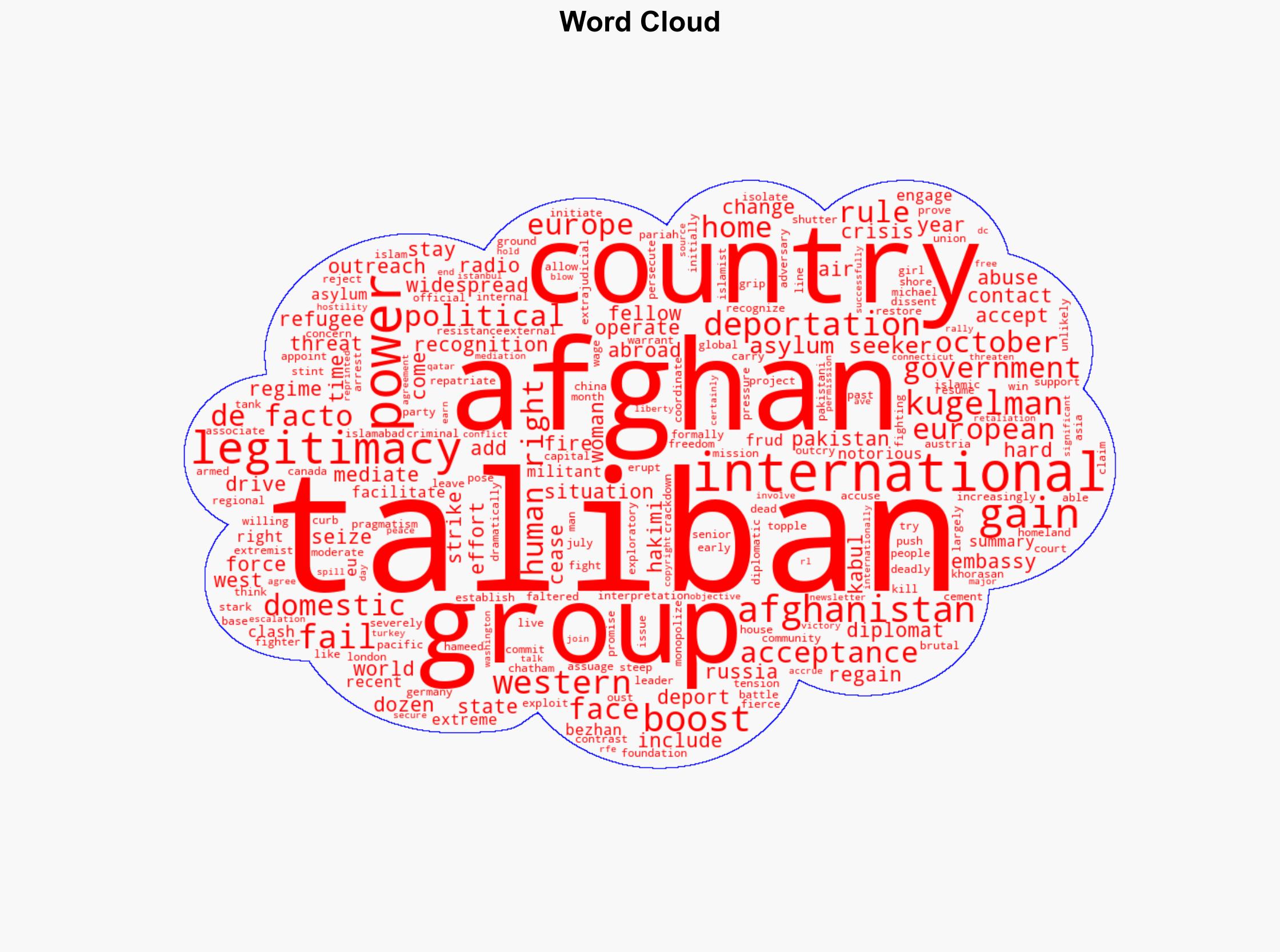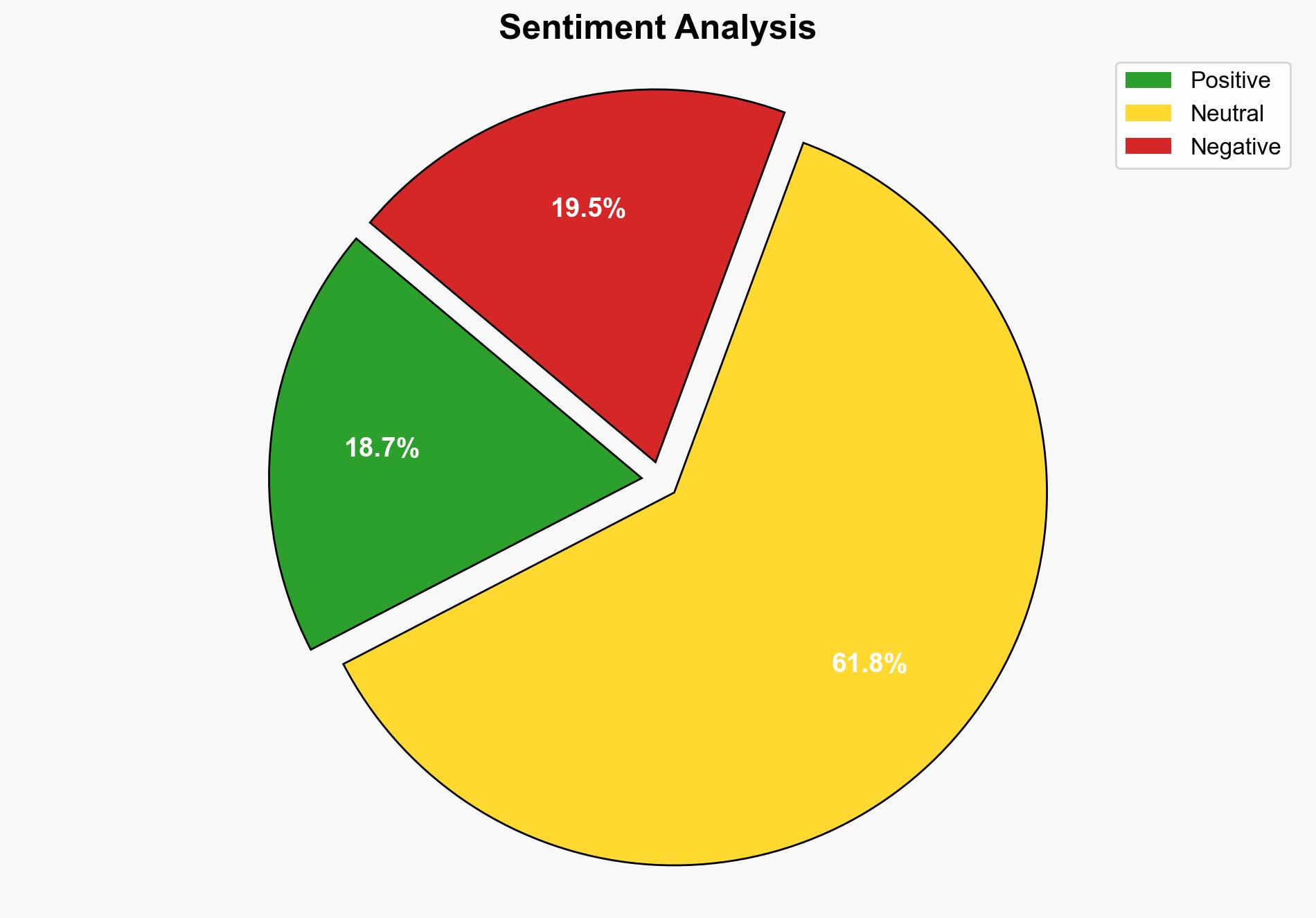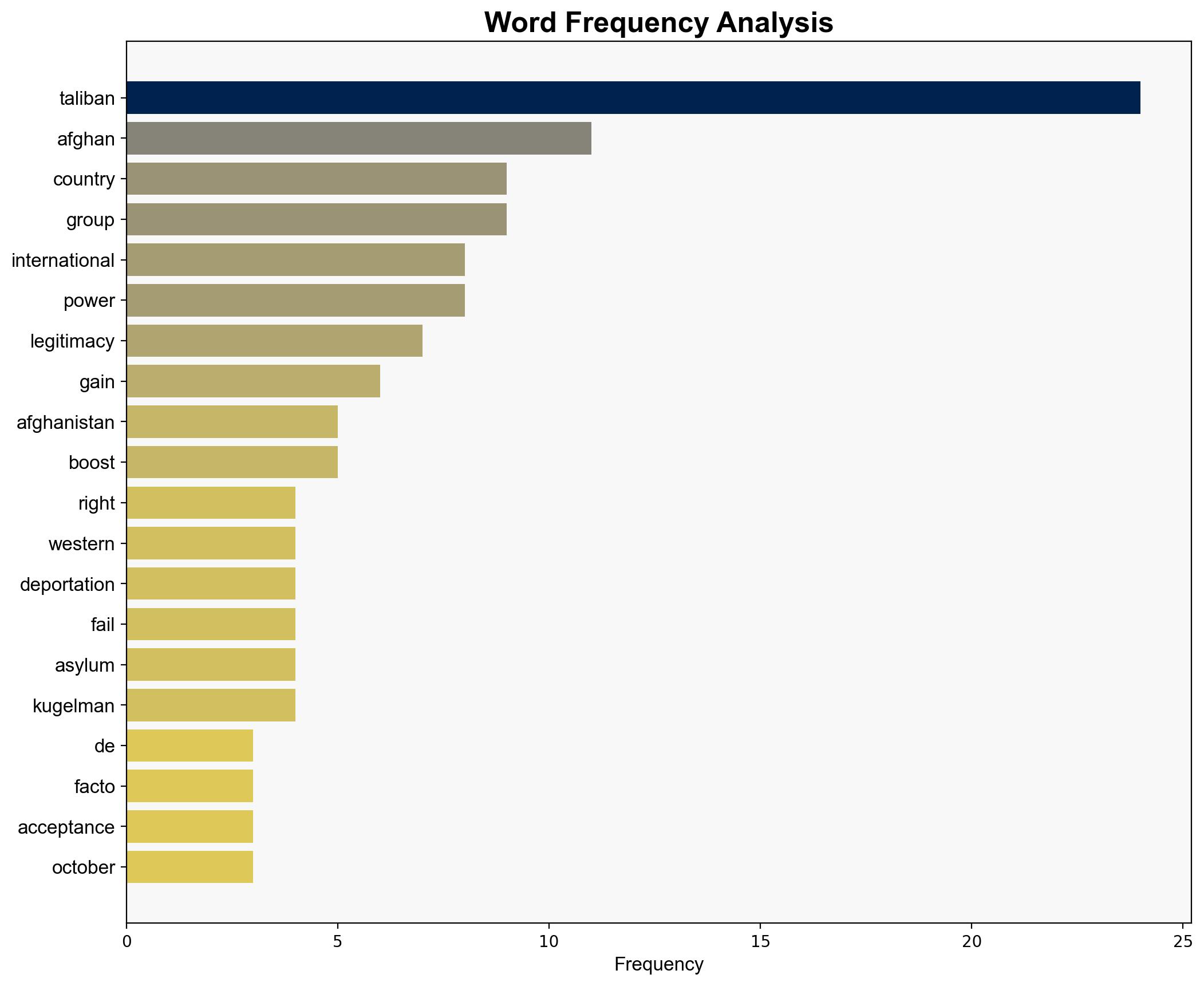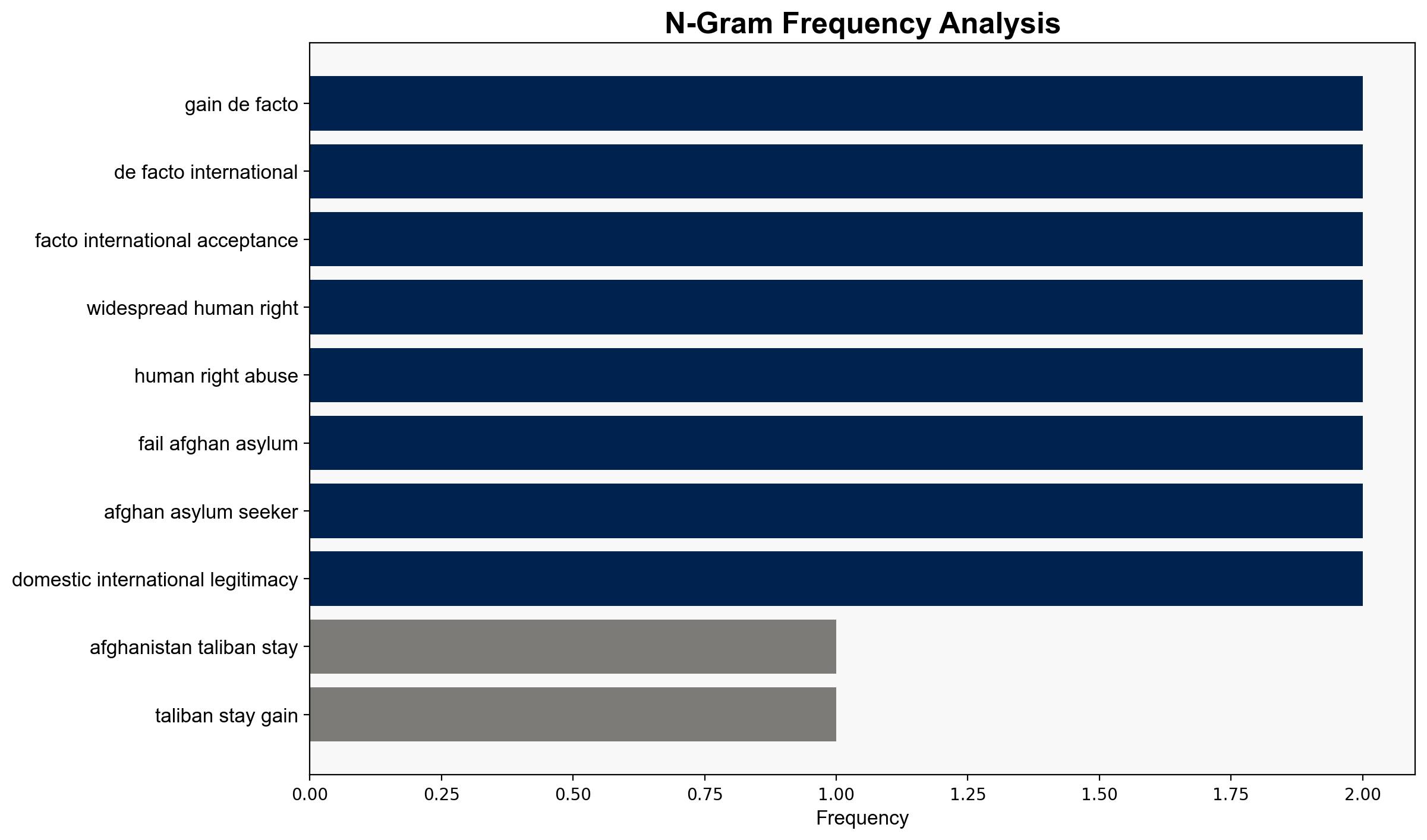Afghanistan’s Taliban ‘Here To Stay’ As It Gains De Facto International Acceptance – Globalsecurity.org
Published on: 2025-10-25
Intelligence Report: Afghanistan’s Taliban ‘Here To Stay’ As It Gains De Facto International Acceptance – Globalsecurity.org
1. BLUF (Bottom Line Up Front)
The Taliban is likely to maintain its hold on Afghanistan and continue gaining de facto international acceptance despite ongoing human rights abuses and internal challenges. This assessment is supported by the pragmatic engagement of several countries with the Taliban regime, driven by geopolitical interests and security concerns. Recommended action includes cautious diplomatic engagement and monitoring of regional stability. Confidence level: Moderate.
2. Competing Hypotheses
1. **Hypothesis 1:** The Taliban will solidify its control over Afghanistan and achieve broader international recognition due to pragmatic geopolitical interests and security concerns from neighboring countries and global powers.
– **Supporting Evidence:** Engagement by countries like Russia and China, the operation of embassies in Kabul, and Western countries’ pragmatic outreach driven by security threats from groups like ISIS-K.
2. **Hypothesis 2:** The Taliban’s international acceptance will remain limited, and internal instability will challenge its governance, preventing full international recognition.
– **Supporting Evidence:** Continued human rights abuses, internal resistance, and lack of formal recognition by Western nations. The Taliban’s failure to fulfill promises of moderation and the ongoing armed resistance highlight governance challenges.
3. Key Assumptions and Red Flags
– **Assumptions:** The assumption that geopolitical interests will outweigh human rights concerns in international dealings with the Taliban. The belief that regional security threats will drive engagement despite ideological differences.
– **Red Flags:** Potential overestimation of the Taliban’s ability to maintain internal stability. The assumption that pragmatic engagement will lead to formal recognition could be flawed if human rights abuses escalate.
4. Implications and Strategic Risks
– **Geopolitical Risks:** Increased regional instability if Taliban governance falters, potentially leading to refugee crises and cross-border conflicts.
– **Security Risks:** The presence of extremist groups like ISIS-K in Afghanistan poses a threat to regional and global security.
– **Economic Risks:** Continued isolation could exacerbate Afghanistan’s economic crisis, leading to humanitarian issues and potential radicalization.
5. Recommendations and Outlook
- Engage in cautious diplomatic dialogue with the Taliban to address security concerns while advocating for human rights improvements.
- Monitor regional dynamics closely to anticipate potential spillover effects of internal Afghan instability.
- Scenario Projections:
- Best Case: The Taliban moderates its policies, leading to broader international acceptance and regional stability.
- Worst Case: Escalation of internal conflict and human rights abuses, resulting in increased isolation and regional instability.
- Most Likely: Continued pragmatic engagement by some countries, with limited formal recognition and ongoing internal challenges.
6. Key Individuals and Entities
– Michael Kugelman
– Hameed Hakimi
7. Thematic Tags
national security threats, regional focus, counter-terrorism, geopolitical strategy




